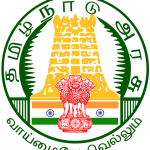- The Juvenile Justice (Care and Protection of Children) Amendment Bill, 2021, which seeks to amend the Juvenile Justice Act, 2015, was passed in Rajya Sabha on July 28, 2021.
- The Act was introduced and passed in Parliament in 2015 to replace the Juvenile Delinquency Law and the Juvenile Justice (Care and Protection of Children Act) 2000. One of the main provisions of the new Act is allowing the trial of juveniles in conflict with law in the age group of 16-18 years as adults, in cases where the crimes were to be determined. The nature of the crime, and whether the juvenile should be tried as a minor or a child, was to be determined by a Juvenile Justice Board. This provision received impetus after the 2012 Delhi gangrape in which one of the accused was just short of 18 years, and was therefore tried as a juvenile.
- The Act also streamlined adoption procedures for orphans, abandoned and surrendered children and the existing Central Adoption Resource Authority (CARA) has been given the status of a statutory body to enable it to perform its function more effectively.

Key Amendments:
- The amendments include authorizing District Magistrate including Additional District Magistrate to issue adoption orders under Section 61 of the JJ Act, in order to ensure speedy disposal of cases and enhance accountability. The District Magistrates have been further empowered under the Act, to ensure its smooth implementation, as well as garner synergized efforts in favour of children in distress conditions.
- As per the amended provisions of the Act, any Child Care Institutions shall be registered after considering the recommendations of the District Magistrate. The DM shall independently evaluate the functioning of District Child Protection Units, Child Welfare Committees, Juvenile Justice Boards, Specialized Juvenile Police Units, Child care Institutions etc.
- Presently there are three categories (petty, serious and heinous) defined under the Act which are referred to, while considering the cases of children in conflict with law. However, it was observed that some of the offences do not strictly fall under any of these categories. It has been decided that offences where the maximum sentence is more than 7 years imprisonment but no minimum sentence has been prescribed or minimum sentence of less than 7 years is provided, shall be treated as serious offences within this Act.




